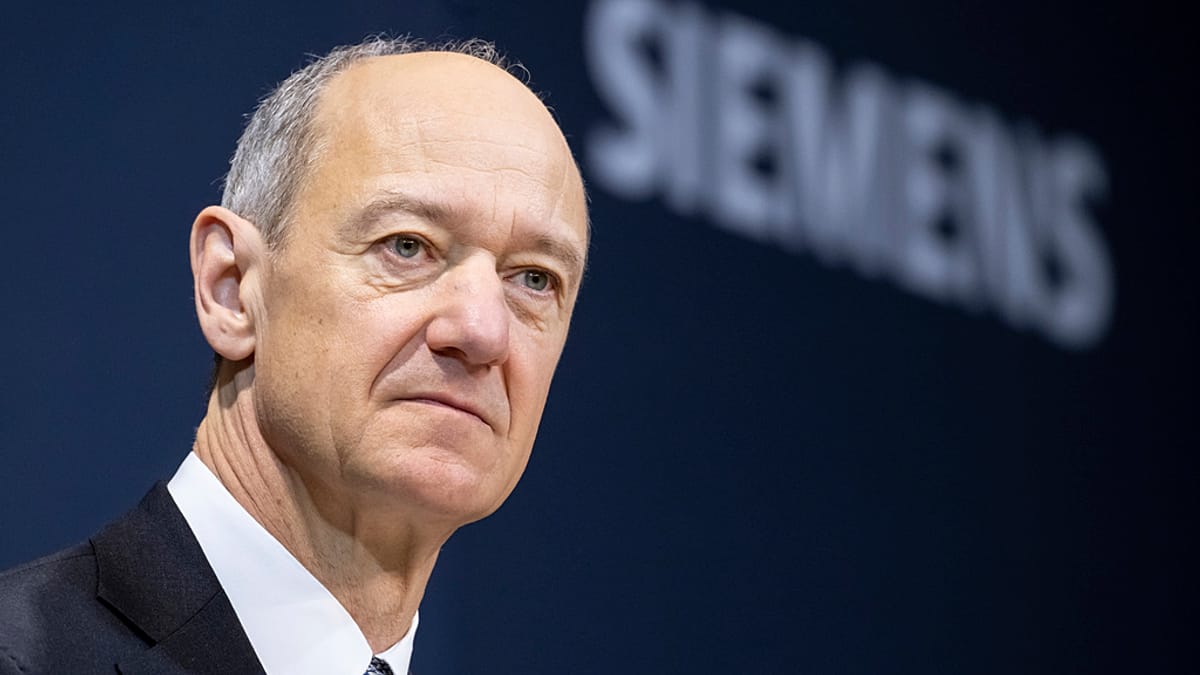Published on
Siemens has reported record profit and cash flow for 2025, driven by steady demand for its software and energy infrastructure.
The company said net income rose 16% to €10.4 billion, while free cash flow reached an all-time high of €10.8 billion.
The German industrial group said on Thursday that it had finished the year with a strong fourth quarter. Cash flow rose to €5.3 billion, the highest quarterly figure Siemens has ever reported, and revenue grew 6% on a comparable basis.
Earnings were partly held back by costs linked to the $10.6 billion Altair and $5.1 billion Dotmatics acquisitions, as well as higher severance expenses.
Siemens said on Wednesday night that it would also reduce its 67% stake in Siemens Healthineers, transferring 30% to Siemens’ shareholders as part of a “deconsolidation” process that will enable the group to focus more on software and artificial intelligence (AI).
Over the full year, orders and revenue grew in the mid-single-digit range, in line with Siemens’ guidance. Total revenue reached €78.9 billion and orders €88.4 billion. The company said it plans to raise its dividend to €5.35 a share, up from €5.20 last year.
Results varied across divisions, with the group’s digital industries business seeing strong demand for automation systems and software, including growth in China.
Smart Infrastructure meanwhile reported higher revenue across most regions. Mobility was softer, reflecting a slowdown after an unusually high volume of train and rail orders the previous year.
Looking ahead, Siemens expects revenue to grow between 6-8% for 2026. However, the group warned that “substantial burdens from currency effects” would weigh on reported growth and profitability over the coming year.
President and CEO Roland Busch called the year a “milestone” for Siemens, citing progress in the company’s shift toward software and AI.
“With our ONE Tech Company program, we are laying the foundation for even stronger customer focus, faster innovations and higher profitable growth,” he said.
The results come as Brussels reviews key industrial and digital regulations, including possible amendments to the EU’s AI Act — a framework that large manufacturers such as Siemens have urged policymakers to clarify.
The Commission has also pressed member states to reduce reliance on critical raw materials, such as rare earths, which underpin many of the automation and energy systems Siemens supplies.

